Reflection on Patient's Perspective in ICU: Healthcare Report
VerifiedAdded on 2022/10/12
|5
|1248
|26
Report
AI Summary
This report reflects on the experience of a patient, Melisa, who was admitted to the ICU due to acute respiratory distress syndrome (ARDS). The report draws from a patient testimonial, detailing the psychological and emotional distress caused by the ICU environment, including feelings of isolation, discomfort with medical procedures, and memory issues. The reflection emphasizes the importance of understanding the patient's perspective and the potential for adverse psychological effects of ICU stays, such as PTSD and depression. It highlights the significance of communication, therapeutic relationships, and providing adequate information to patients to mitigate these negative impacts. The report references various literature to support the claims regarding the impact of ICU on patients' mental health, advocating for interventions like mental support and improved communication strategies from healthcare professionals to enhance the quality of life for ICU survivors. The assignment fulfills the brief by reflecting on a patient's experience, considering the perspective of the person being cared for, and analyzing the impact of the experience on the patient's well-being, as well as the role of healthcare professionals in mitigating the negative effects.
1 out of 5
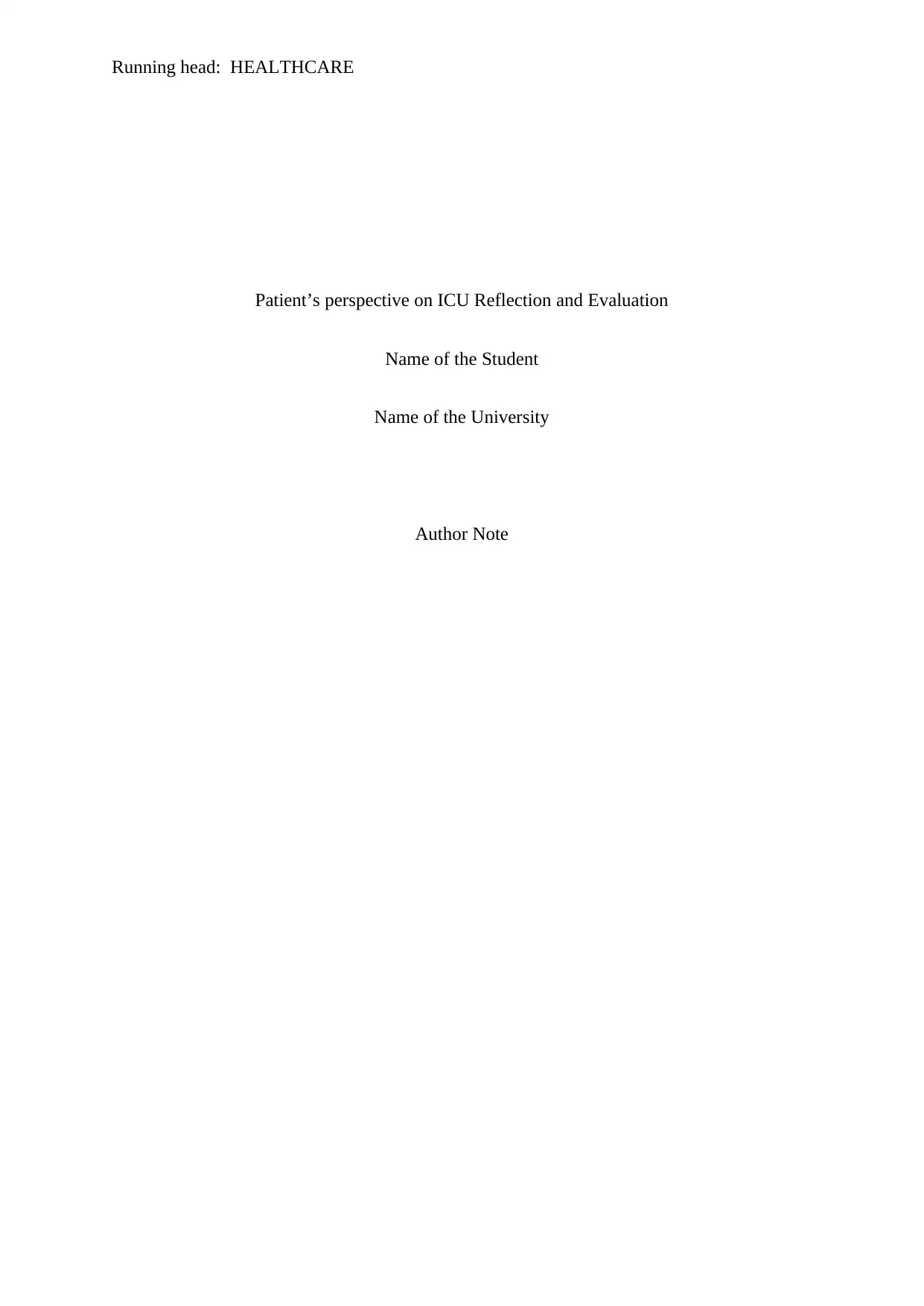
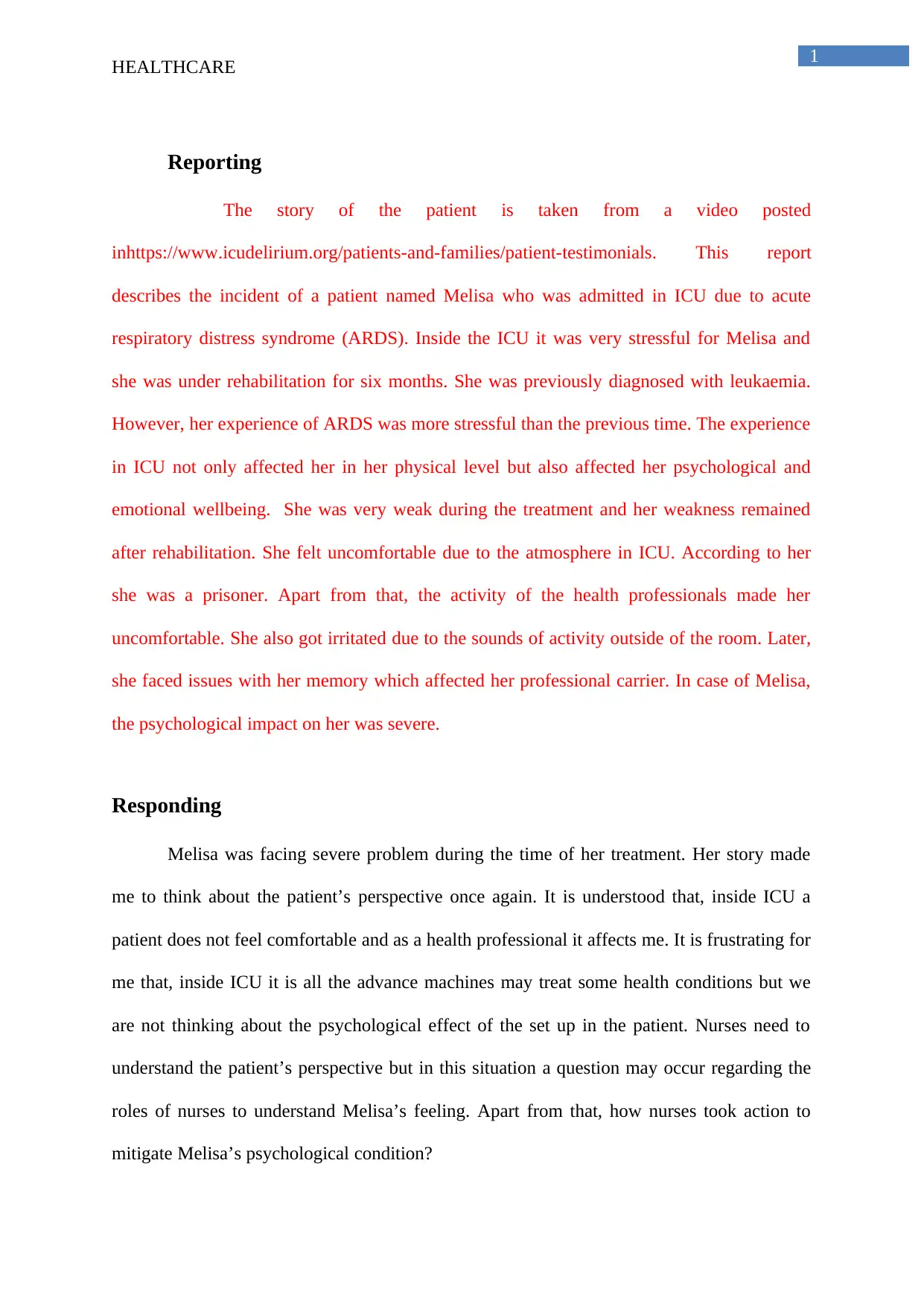
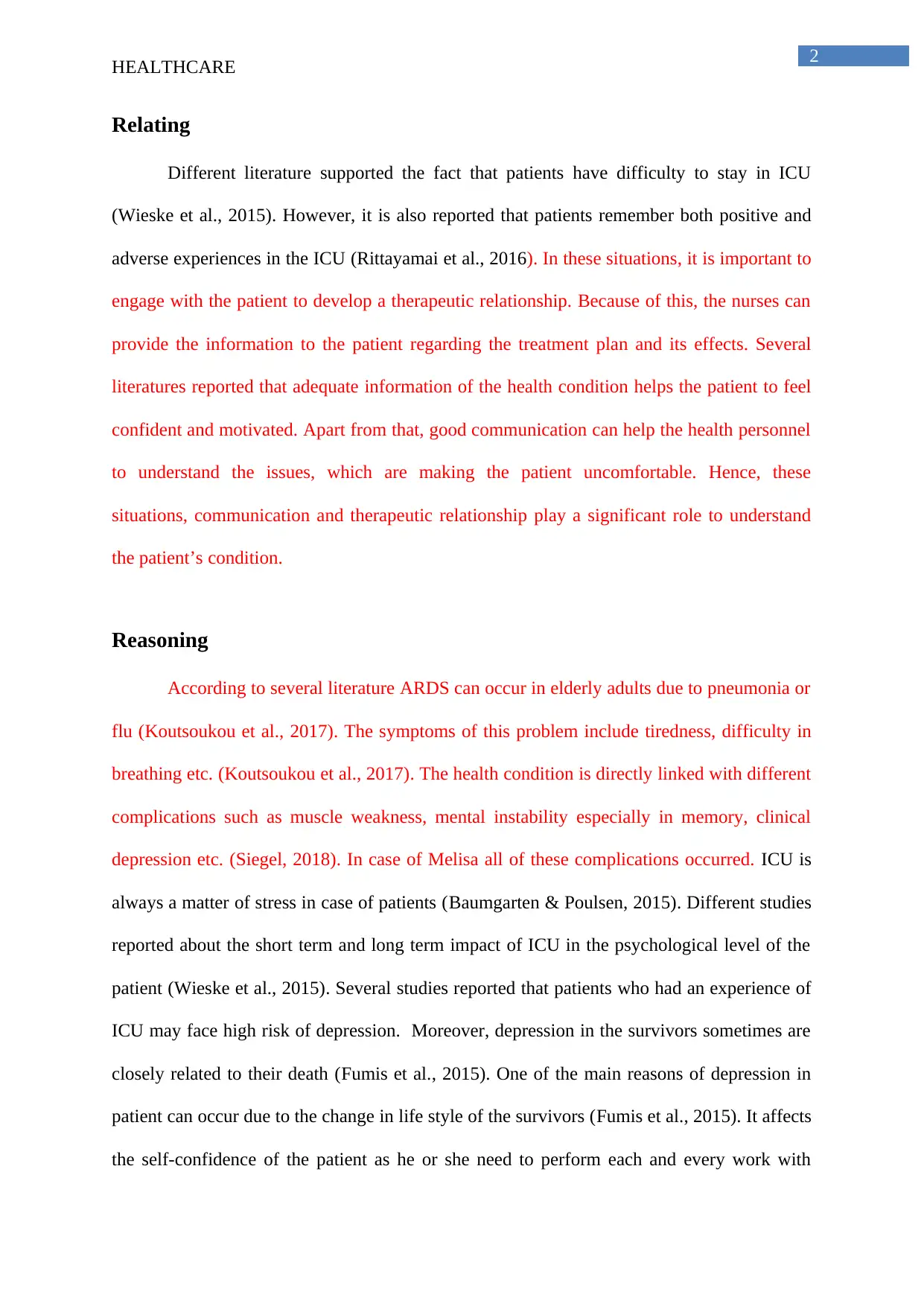

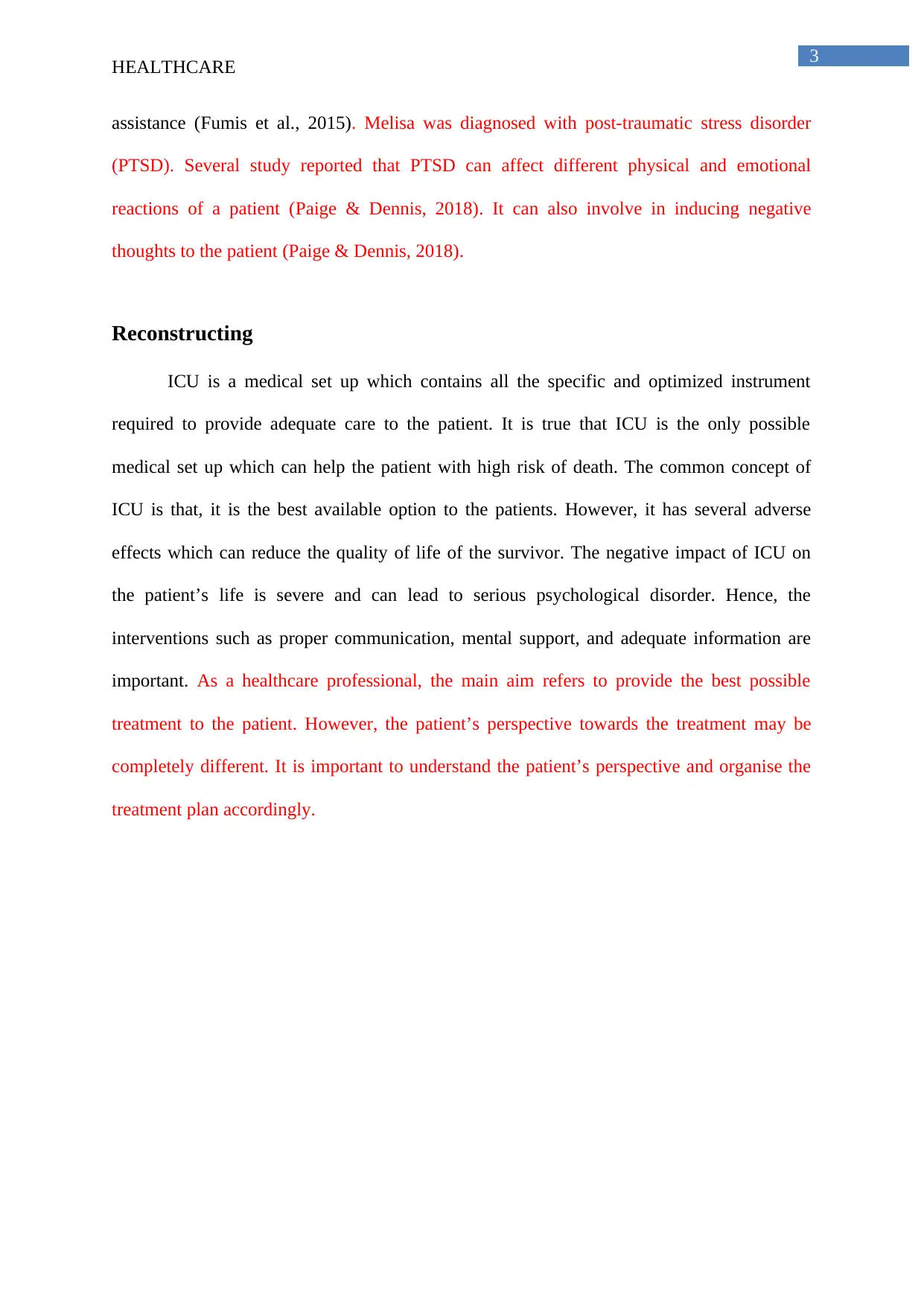
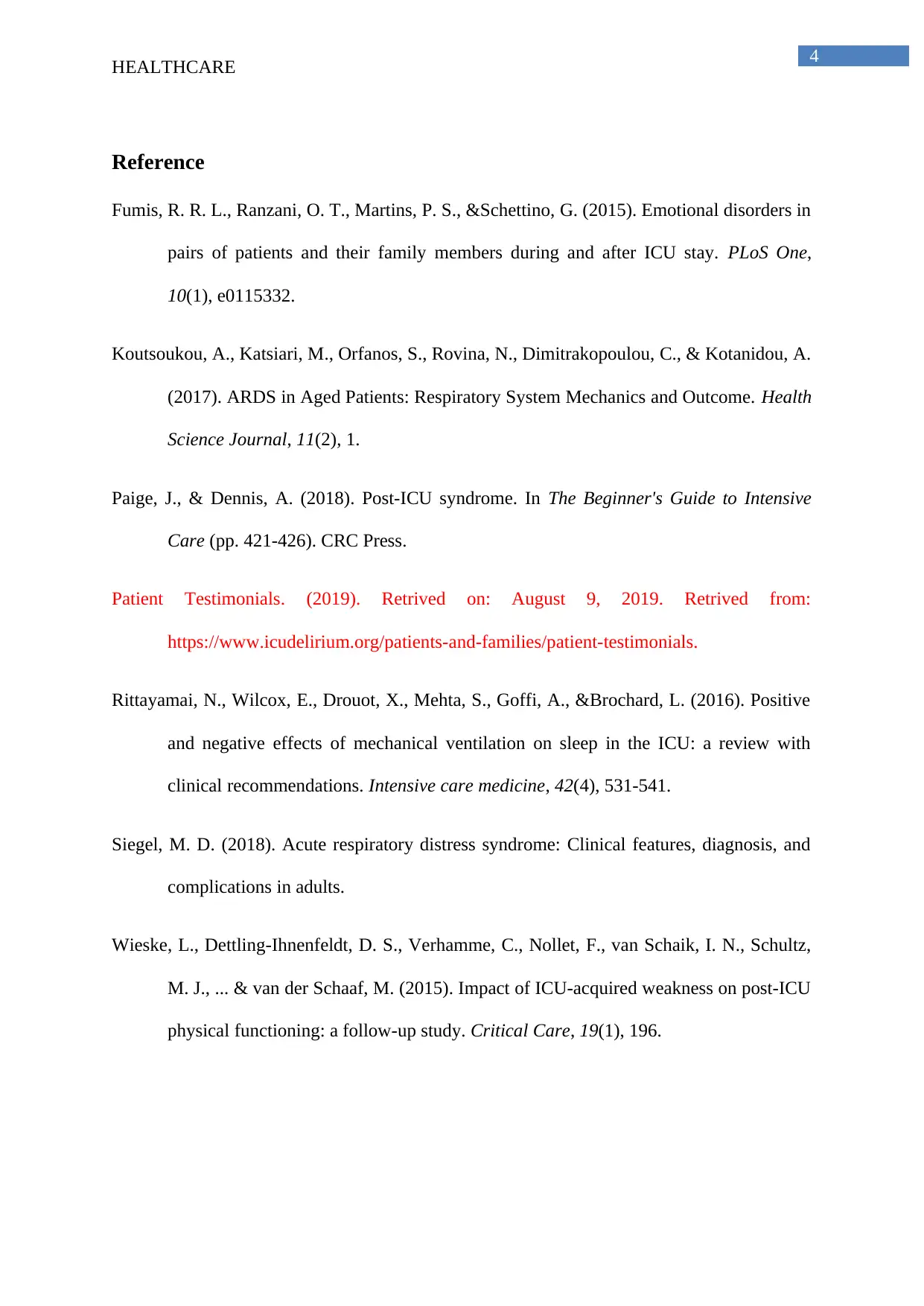






![[object Object]](/_next/static/media/star-bottom.7253800d.svg)